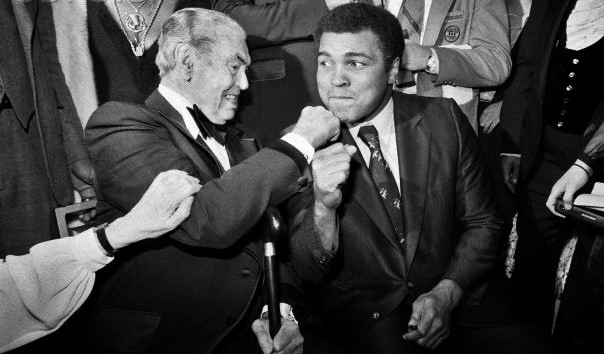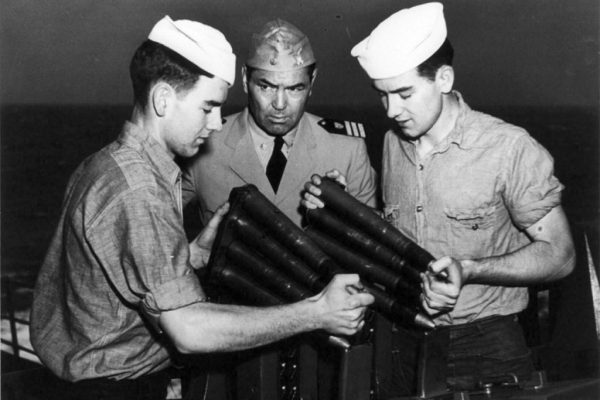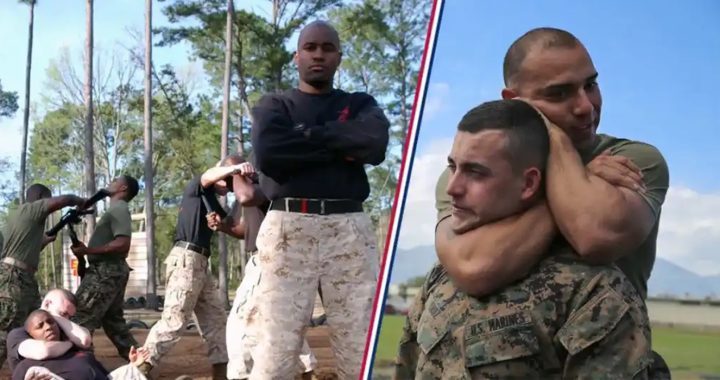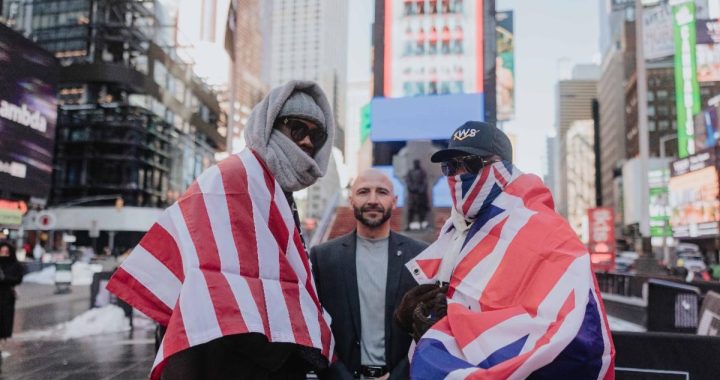
Jack Dempsey and Muhammad Ali: How the heavyweight title has attracted legal disaster throughout history
The year was 1919 and Jack Dempsey had finally captured the World Heavyweight title from the monstrous Jess Willard. Willard had taken the belt from the now-iconic Jack Johnson and defended once at Madison Square Garden against Frank Moran. But in July of 1919, he would ultimately take on Dempsey, AKA the Manassa Mauler, AKA Kid Blackie.
Dempsey would pummel Jess Willard as we would soon come to find out. But the fight, which Dempsey would go on to say that he was legitimately scared for his own life, would not be his toughest. Soon after, Dempsey would be accused of draft dodging from the U.S. draft during the events of World War I.
The Government, Ex-Wives, And Jack Dempsey
Jack Dempsey and his slacker trial was one of the earliest of celebrity gossip at a large scale. On one side, you had the United States government who drafted young men to war at the height of World War I. On the other, the heavyweight champion of the world in Jack Dempsey.
To get the full scope of the trial we have to go back some years, all the way to 1916 when Jack Dempsey met and eventually married Maxine Cates. Dempsey met Cates in a brothel. At the time, Dempsey was moving from town to town and boxing who he could with his managers Tex Rickard and Doc Kearns. Maxine Cates was a piano singer, a possible prostitute, and a couple decades older than Dempsey.
Cates and Dempsey wouldn’t be married long, divorcing in 1919 officially. The truth is, Dempsey and Cates split much longer before that. The problem is that wouldn’t become official until later and that would come back to haunt Jack Dempsey.
The U.S. entered World War I in April of 1917 and implemented a draft to get more soldiers to the battlefield. At the time, Dempsey was working at a harbor and boxing on the side. At that time, he enlisted in the army and submitted his name for consignment but was granted a relief due to hardship which means that he was the main support for his wife, Maxine, his parents and his siblings. With this being the case, Dempsey did not have to fight in the war and could continue to box.
It wasn’t until 1920 that Maxine Cates returned to Dempsey’s life after leaving and frequenting work in brothels. She came out saying that Dempsey never supported her and that she had letters from Dempsey that he was intentionally avoiding the draft.
The trial was long, nasty and the stuff we see commonplace today in celebrity gossip. Dempsey was said to not only have dodged the draft but that he was also a sexual deviant and that it would be revealed in the letters. Cates, however, would be the target of the prosecutors who were looking for a neck for their proverbial noose. Maxine Cates was harassed into signing a letter after she came out to the Chronicle about her accusations against Dempsey.
Finally, after embarrassment, slander, and everything else the prosecutors could do to drag Dempsey’s name through the mud, Maxine Cates sent a letter to the San Francisco Chronicle which was notarized saying:
On two different occasions I know to my own knowledge, Jack tried to enlist. I begged him not to because he had his father and mother and me to support.
If I ever said that Jack was a slacker, or signed anything to that affect, I did so because I was jealous of Dempsey and had been made mad at him by his enemies continually ribbing me. At all times during our married life, Jack Dempsey supported me to his very utmost ability, as he did with his old father and mother.
I have no letters nor any writing of any kind nor have I ever had any to the effect that he was trying to avoid the draft or the war. I am very sorry and regret very much that I have said or done anything to injure the reputation of Jack Dempsey.

Dempsey was eager to clear his name and 20 years after the trial he enlisted in the Coast Guard at the time of World War II. It was there Dempsey became lieutenant and. In 1942, he reported for duty at the Coast Guard Training Station in Manhattan Beach, Brooklyn and was assigned to be the “Director of Physical Education.” Later on in 1945, Dempsey would be on the USS Arthur Middleton for the invasion of Okinawa.
Something to fight for: Muhammad Ali
The story of Jack Dempsey is a bit reminiscent of the persecution of Muhammad Ali decades later. Both fighters were heavyweight champions. Both Ali and Dempsey were lineal champions at that, all connected to John L. Sullivan, and we’re persecuted for draft dodging. But that’s where the comparisons end.
Unlike Dempsey, Muhammad Ali would be sending a message and would avoid the draft on purpose. Dempsey’s reasoning was to support his family. Ali didn’t go to the draft for racial and cultural reasons. Martin Luther King Jr. would march and deliver his famous “I Have A Dream” speech five years earlier in 1963 and Civil Rights laws passed a year later in 1964. Ali would deliver his speech about not going to the war in 1967.
Having grew up in the throes of racism before the Civil Rights movement, Muhammad Ali grew up with racism all his life. Even after beating Sonny Liston and becoming the heavyweight champion of the world, Ali was still refused service at a restaurant in his home town of Louisville, Kentucky.
Ali drew the public’s scorn even further after beating Liston by announcing to the world that he had become a part of the Nation of Islam. Now not only was there a black heavyweight champion of the world, but there was a black, Muslim heavyweight champion of the world.
During the war, much like Jack Dempsey, the government tried to make an example out of Muhammad Ali. After reporting for consignment and asked to step forward by officials to accept said consignment, Ali did not despite it being understood that he would not actually go to war.
Ali said that while he wasn’t going to war with the Vietcong, he was still fighting every single day of his life and he has been for a long, long time.
“I ain’t draft dodging. I ain’t burning no flag. I ain’t running to Canada. I’m staying right here. You want to send me to jail? Fine, you go right ahead. I’ve been in jail for 400 years. I could be there for four or five more, but I ain’t going no 10,000 miles to help murder and kill other poor people. If I want to die, I’ll die right here, right now, fightin’ you, if I want to die. You my enemy, not no Chinese, no Vietcong, no Japanese. You my opposer when I want freedom. You my opposer when I want justice. You my opposer when I want equality. Want me to go somewhere and fight for you? You won’t even stand up for me right here in America, for my rights and my religious beliefs. You won’t even stand up for my right here at home.”
Ultimately, Muhammad Ali did not go to jail, nor did he go to war and eventually the draft was done away with. But unlike Dempsey, Ali stood up for his beliefs and rights as a human being. This is not to say Dempsey was less of a champion because Ali had something more he was fighting for. But it goes to show you that there’s a: a precedence that the government will go after draft dodgers to make an example of them and b: Ali likely knew how bad it could get with what Dempsey went through.
Is the heavyweight title cursed?
With Jack Dempsey and Muhammad Ali going through such legal troubles, I would be remiss not to mention some of the other problems other heavyweight champions have gone through. Dempsey and Ali were quite big controversies in their heyday.
But trouble and hardships seem to follow around the heavyweight title. Even before Jack Dempsey in the 20’s, Jack Johnson would find hard times as the heavyweight champion of the world. In a time of even more extreme racism (the Civil Rights movement was still 50 years away), Johnson was arrested for what was essentially his relationship with Lucille Cameron, a white lady. He allegedly violated the Mann Act which prohibited the transport of women across state lines for immoral purposes. Lucille was an alleged prostitute. He was released from these charges with Cameron not cooperating.
But soon after Johnson was arrested again for the same charges with another woman in his past in 1909 and 1910. Johnson was convicted by an all-white jury in 1913 and was sentenced to a year and one day in prison. Johnson would skip bail and flee the country, meeting up with Lucille in Montreal before eventually returning to the US and serving out his sentence. Johnson wouldn’t be pardoned until 2018 by President Donald Trump.
In the late 80’s, trouble would find Mike Tyson as his wife, Robin Givens, wanted a divorce. Givens would go on national television with Mike Tyson to discuss their failing relationship together. A wild thing to think about in hindsight, but Tyson agreed to be on the show. It was there that Givens caught Tyson off guard by saying that Tyson beat her. It was humiliating for Tyson who would go on to lose to Buster Douglas in one of the biggest upsets in boxing history.
And now, in present times, we have Tyson Fury denied entry to the United States for his alleged involvement with the notorious Kinahan Cartel. And even George Foreman isn’t free from the accusations as two women have come out and said that he sexually assaulted him decades ago.
With all these fighters having trouble find the heavyweight champion, it’s an example about how money attracts flies and those flies can get one in trouble.
**********
In addition to covering the boxing history for My MMA News, Blaine Henry, the author, also analyzes fights from all combat sports across the globe.
Blaine Henry can be found on Twitter, on his podcast, and Discord.

























